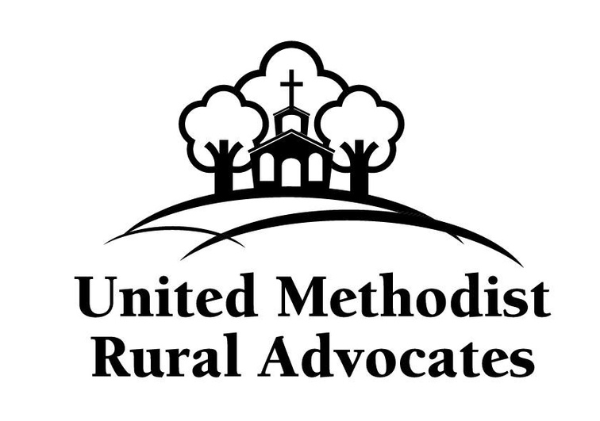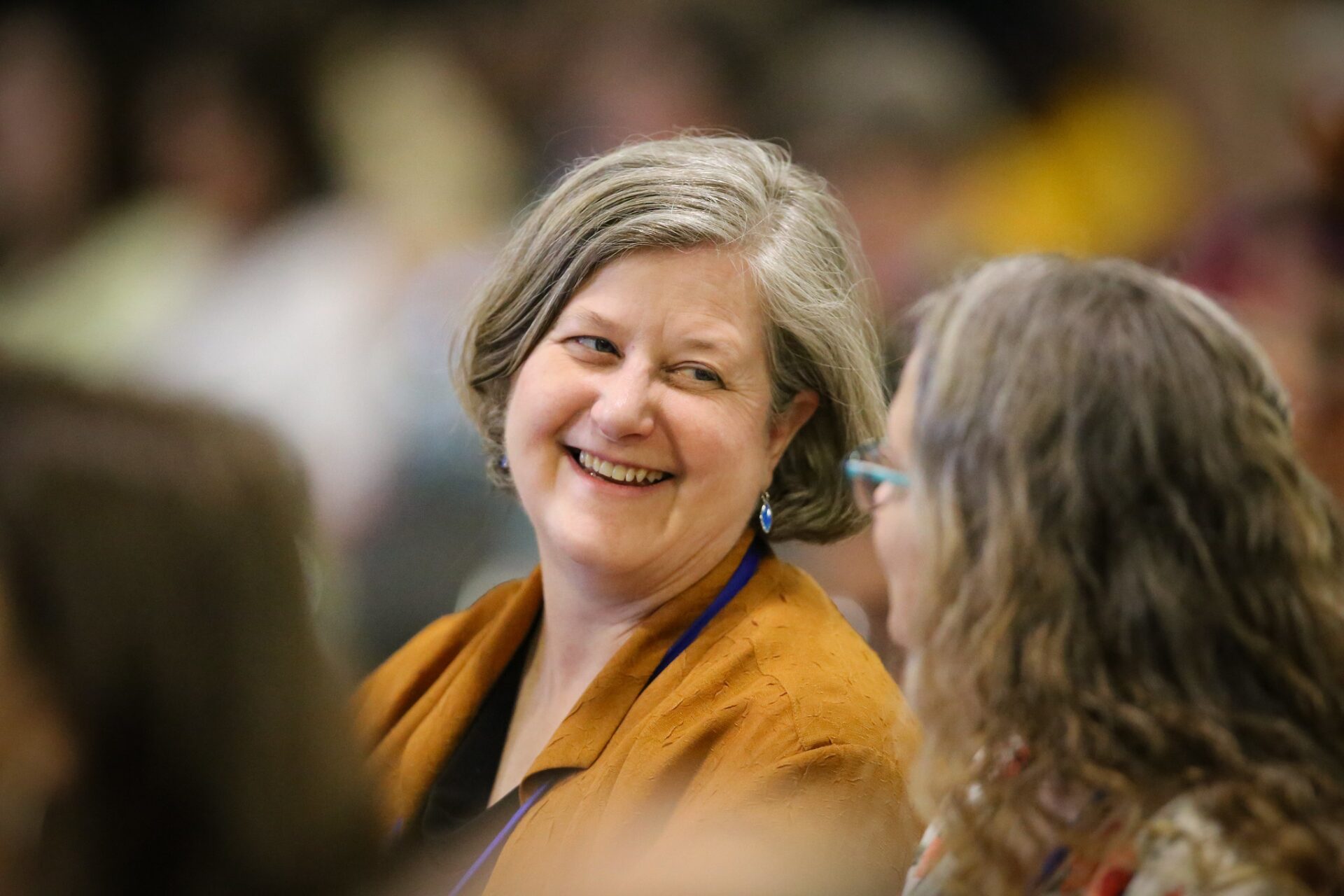Rev. Jodie Flessner attended General Conference as a leader for United Methodist Rural Advocates, making a positive difference for rural congregations in Michigan and beyond.
GLENN M. WAGNER
Michigan Conference Communications
Rev. Jodie Flessner is the superintendent of the Western Waters District here in the Michigan Conference. This district includes 76 United Methodist churches in 12 Michigan counties, stretching from Holland in the south 186 miles north to Northport Indian UMC north of Traverse City. Flessner understands the challenges of ministry in a district encompassing large cities and many rural congregations and communities. Her additional advocacy for United Methodism’s rural congregations worldwide requires her to stretch her vision even further.
Flessner recently attended the 2024 General Conference of The United Methodist Church as the vice-chair of United Methodist Rural Advocates (UMRA). During this year’s General Conference, held from April 23 to May 3 in Charlotte, NC, UMRA members monitored proposed legislation and served, if called upon, as witnesses on behalf of specific legislation with implications for rural ministries. They spent time between sessions meeting with delegates to grow relationships and lobby for rural ministry needs and interests around the world.

According to Flessner, UMRA has been meeting since the 1940s. UMRA functions as a caucus and lobbying group, giving voice to and supporting the needs and issues of the many rural and small-town congregations in United Methodist policymaking. (Click to learn more about the impact of caucuses and lobbying groups at General Conference.) Such key issues include economic and environmental concerns facing family farms and rural communities.
UMRA is an association of United Methodist clergy and laity from all over the world. Their goal is to “provide advocacy at General Conference and Annual Conferences to affect rule changes that enable churches to better minister in their communities, provide educational opportunities for the leaders of rural churches to serve their church bodies better, and support church leaders in personal growth and ministry.” (Click to read a recent UMRA newsletter and learn more.)
Jodie Flessner’s interest in serving rural congregations grew naturally as the daughter of a Michigan United Methodist pastor. Jodie’s father, Raymond Flessner, was also experienced and committed to rural ministry. She developed an interest in and skills for engagement in larger social issues while earning her undergraduate degree in political science at Albion College. She was also a graduate of the Gerald Ford Institute for Public Service. Flessner later received her master of divinity degree from United Theological Seminary in Dayton, OH. She also credits her friendships with other Michigan clergy and laity for inviting and supporting her involvement in the national advocacy group for rural ministry.
Flessner explained that UMRA-sponsored General Conference legislation on Nurture, Outreach, and Witness in the 1980s opened the door for contextualized church leadership structures. This has allowed for simpler and more unified structures, especially for smaller congregations with precious volunteer time. Allowing single-board governance as an option for local churches frees leaders to spend less time on administration and more on direct ministry, mission, service, and witness for Christ.
Flessner further credits UMRA with early support and advocacy for Mobility Worldwide and their mobility carts (PETs). This volunteer effort to build three-wheeled hand-cranked transports for disabled persons started in Africa seventy years ago by Larry Hill, an agricultural missionary from Michigan, and has since evolved into a global network. UMRA also played a role in founding the Rural Chaplain’s Association. This year, UMRA provided scholarship assistance and grants from the General Board of Global Ministries for nine laity, seminarians, and pastors in their first years of ministry to attend General Conference as observers.
Flessner also knows that the future goals of UMRA involve providing greater inclusion, flexibility, and recognition for people currently serving in congregational leadership as licensed local pastors. According to Flessner, Michigan currently has between 175 and 200 local pastors. Many of them serve rural and smaller membership congregations. Approximately 100 of these local pastors are serving full-time, fifty are part-time, and the rest are retired but still serve churches in retirement. UMRA wants to make it easier for local pastors to transfer across conference lines to serve as needed. Ordained deacons and elders can make these transfers without needing to restart certification procedures.
In the February UMRA newsletter, Jodie Flessner eloquently shared important observations about how she has experienced Christ’s love and living hope in rural congregations that are embracing the challenges of the present day. Flessner details how congregations she serves in Michigan are meeting challenges to use their buildings, church grounds, and volunteer resources in creative new ways to serve ministry for Jesus. (Click to read the full article.)
Effective district superintendents are essential to United Methodist connectional ministry. These servants of Christ provide valuable leadership in training and deploying pastors, linking local churches to shared mission and ministry, mediating conflict, and launching new ministries.
Jodie’s leadership reflects John Wesley’s when the founder of Methodism wrote in a letter in 1739, “I have now no parish of my own . . . . I look upon all the world as my parish. . . . This is the work I know God has called me to do, and I am sure that his blessing attends it.” Jesus similarly commissioned his disciples with a worldwide vision when he challenged them on a mountaintop in Galilee to “go and make disciples of all nations” (Matthew 28:19, CEB).
Thanks to people like Rev. Jodie Flessner and organizations like United Methodist Rural Advocates, we are reminded of the call to follow Jesus. Discipleship can take us beyond the boundaries of our communities and immediate circles of belonging to engage a wider world. Many issues we face at home are shared with others who dwell beyond our zip code. Ministry for Jesus can be more effective when we join hands as a greater body of Christ.
Last Updated on May 14, 2024

